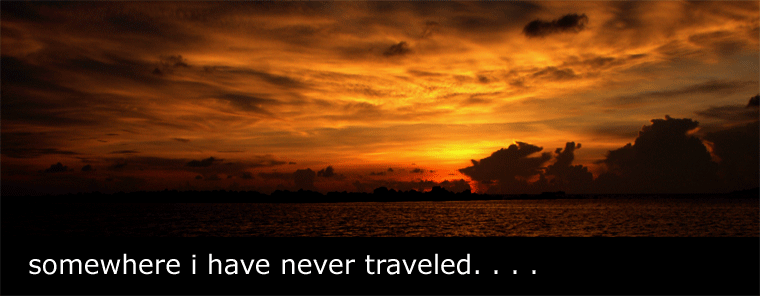Giving Thanks
In the United States, the fourth Thursday of November is celebrated as Thanksgiving Day. On this day, Americans everywhere come home and pause to give thanks for the blessings they have received in the year.
Justice Paul E. Pfeifer traces this tradition to the European Pilgrims who arrived in America from Holland in November 1620 following a grueling sixty-five day voyage across the Atlantic, in an undersized, overcrowded boat called the Mayflower.
The Pilgrims’ first winter in the New World, Justice Pfeifer narrates, nearly did them in. Of the one hundred ten settlers, less than fifty made it through to spring. Those who did survive faced the challenge of carving out a settlement in the wilderness.
Thankfully, spring brought a reprieve and important new allies: the Wampanoag tribe. The Wampanoag taught them how to raise crops and hunt game in the forest, so that when October rolled around, their bountiful harvest provided enough food to carry them through the winter.
In thanksgiving for this bounty, they invited their Indian friends to a feast, and the American tradition of Thanksgiving was born.
In 1974, President Marcos attempted to transplant this tradition by declaring September 21 of each year as a National Day of Thanksgiving. Perceptive Filipinos of that time, however, saw through the dictator’s ruse: by setting the holiday on the same date as the declaration of Martial Law, many realized that this was merely a ploy to obscure the repressive character of his dictatorship.
Thus, the tradition never quite caught on.
Still, while Filipinos do not have a formal day of thanksgiving like the Americans, the many festivals celebrated throughout the year in various localities in the Philippines demonstrate the innate impulse of our people to give thanks. I am immediately reminded of the Pahiyas Festival in Lucban, Quezon, where, every May 15, locals deck their homes with the products of their toils, in thanksgiving to their patron saint, San Isidro Labrador, for the year’s good harvest.
Whether in the United States or in the Philippines, therefore, whether on a definite holiday or in local feasts, the need to give thanks is universal. What Justice Pfeifer said of the American tradition, therefore, can be said of thanksgiving feasts everywhere: “Thanksgiving is a great holiday because it is so inclusive. This is a holiday that disregards religious affiliation or ethnic background. It is a holiday that gives all people a pause to gather, ponder and give thanks for life’s blessings.”
And so I do the same.
Justice Paul E. Pfeifer traces this tradition to the European Pilgrims who arrived in America from Holland in November 1620 following a grueling sixty-five day voyage across the Atlantic, in an undersized, overcrowded boat called the Mayflower.
The Pilgrims’ first winter in the New World, Justice Pfeifer narrates, nearly did them in. Of the one hundred ten settlers, less than fifty made it through to spring. Those who did survive faced the challenge of carving out a settlement in the wilderness.
Thankfully, spring brought a reprieve and important new allies: the Wampanoag tribe. The Wampanoag taught them how to raise crops and hunt game in the forest, so that when October rolled around, their bountiful harvest provided enough food to carry them through the winter.
In thanksgiving for this bounty, they invited their Indian friends to a feast, and the American tradition of Thanksgiving was born.
In 1974, President Marcos attempted to transplant this tradition by declaring September 21 of each year as a National Day of Thanksgiving. Perceptive Filipinos of that time, however, saw through the dictator’s ruse: by setting the holiday on the same date as the declaration of Martial Law, many realized that this was merely a ploy to obscure the repressive character of his dictatorship.
Thus, the tradition never quite caught on.
Still, while Filipinos do not have a formal day of thanksgiving like the Americans, the many festivals celebrated throughout the year in various localities in the Philippines demonstrate the innate impulse of our people to give thanks. I am immediately reminded of the Pahiyas Festival in Lucban, Quezon, where, every May 15, locals deck their homes with the products of their toils, in thanksgiving to their patron saint, San Isidro Labrador, for the year’s good harvest.
Whether in the United States or in the Philippines, therefore, whether on a definite holiday or in local feasts, the need to give thanks is universal. What Justice Pfeifer said of the American tradition, therefore, can be said of thanksgiving feasts everywhere: “Thanksgiving is a great holiday because it is so inclusive. This is a holiday that disregards religious affiliation or ethnic background. It is a holiday that gives all people a pause to gather, ponder and give thanks for life’s blessings.”
And so I do the same.
* * *
On this day, of all days, this is what I give thanks for:
Rain.
Good friends.
Family.
Sunsets at Loyola.
Pollock talks.
Walks.
Silences.
Firsts.
Conversation.
Stars.
Blue skies.
Memories.
Long drives.
Poetry.
Philosophy.
Song.
Laughter.
Beaches.
Long weekends.
Prayer.
You.
[You know who you are.]





Hey Peej.
Won't you thank yourself for everything you've accomplished so far? You've worked hard. You owe it to yourself, too.
Posted by Nick |
12:00 AM
Nick |
12:00 AM
hmmm. who's "you"? intriga ako!
Posted by ann |
5:02 AM
ann |
5:02 AM